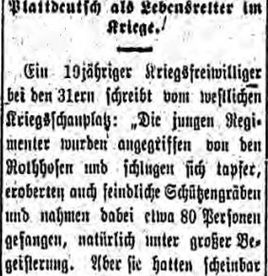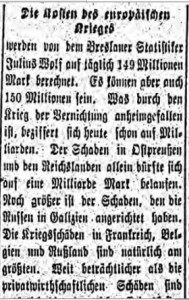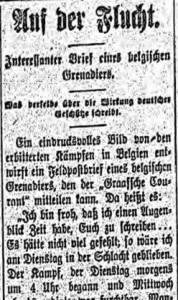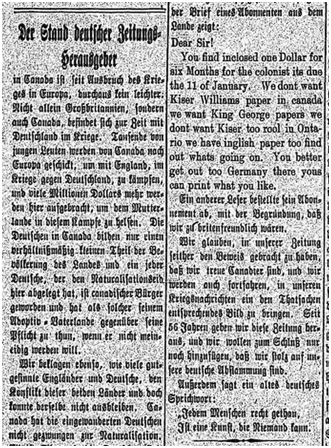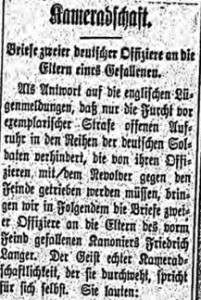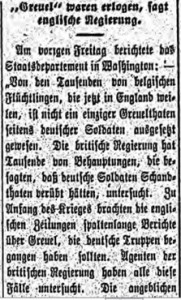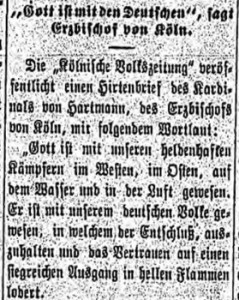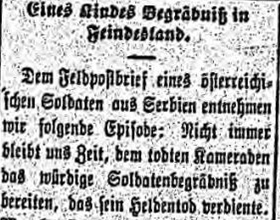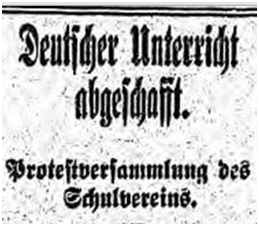In this incident reported by the Journal, the Germans had taken about 80 prisoners on the western front and were turning their guns on the captives. Then one of the French prisoners spoke to the Germans in their own language with a Low German accent, which took his captors by surprise. The French soldier did not want to be shot, and because he lived and worked so long in Hamburg the Germans felt remorse and imprisoned him instead.
(„Plattdeutsch als Lebensretter im Kriege“, Berliner Journal, 23 December 1914)
